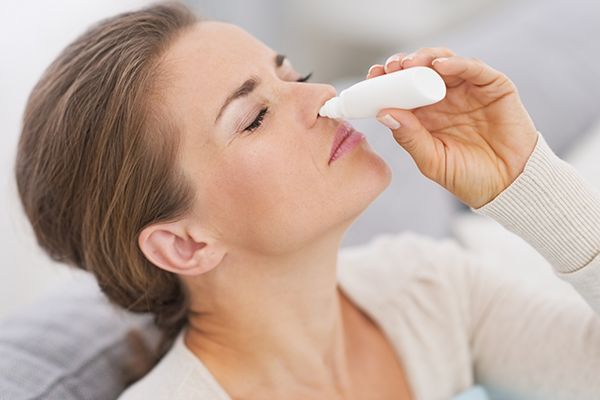Understanding the Causes of a Runny Nose While Running
During running sessions, a runny nose can be a common occurrence for many individuals. This phenomenon is primarily attributed to increased blood flow and nasal congestion that result from physical exertion. As your heart rate rises, blood vessels in the nose expand, facilitating the delivery of oxygen and nutrients to working muscles. Simultaneously, this expansion can lead to an increase in nasal secretions, causing a runny nose.
Environmental factors, such as temperature and humidity, can exacerbate the issue. Cold air, for instance, can cause the blood vessels in your nose to narrow, leading to dryness and irritation. In response, your body may produce more mucus to keep the nasal passages moist, contributing to a runny nose. Similarly, running in humid conditions can cause the nasal passages to swell, making it difficult for mucus to drain properly and resulting in a runny or stuffy nose.
To better understand how to stop runny nose when running, it is essential to recognize these underlying causes and consider preventative measures, proper breathing techniques, and practical solutions for managing nasal congestion during running sessions.
Preventative Measures: Preparing for a Runny-Free Experience
Taking proactive steps to minimize the likelihood of a runny nose during running can significantly enhance your overall running experience. Here are some practical tips to help you prepare for a runny-free experience:
Proper Warm-Ups: Engaging in a proper warm-up routine before running can help increase blood flow and reduce the risk of nasal congestion. Incorporate dynamic stretches, such as leg swings, lunges, and high knees, to gently raise your heart rate and prepare your body for the run.
Hydration: Adequate hydration is crucial for maintaining optimal bodily functions, including nasal health. Ensure you drink plenty of water throughout the day, not just before or during your run. Proper hydration can help thin your mucus, reducing the likelihood of a runny nose.
Clothing Choices: Dress appropriately for the weather conditions to minimize the impact of temperature and humidity on your nasal passages. Opt for moisture-wicking fabrics to keep your skin dry and prevent excessive sweating, which can contribute to nasal congestion.
Nasal Strips or Saline Sprays: Using nasal strips or saline sprays can help open up nasal passages and reduce congestion. Apply nasal strips before running to lift the nasal passages and improve airflow. Saline sprays can help moisturize and soothe irritated nasal passages, reducing the likelihood of a runny nose.
By incorporating these preventative measures into your running routine, you can better understand how to stop runny nose when running and enjoy a more comfortable running experience.
Proper Breathing Techniques: Reducing Nasal Congestion During Runs
Proper breathing techniques play a crucial role in minimizing nasal congestion during running. Both nasal and mouth breathing offer unique benefits, and understanding the advantages of each can help you develop a more effective breathing strategy.
Nasal Breathing: Nasal breathing has several advantages during running. The nasal passages act as a natural filter, warming and humidifying the air before it reaches your lungs. This process can help reduce irritation and inflammation in the respiratory system, potentially minimizing the likelihood of a runny nose. Additionally, nasal breathing stimulates the production of nitric oxide, a molecule that dilates blood vessels and improves oxygen delivery to muscles.
To practice nasal breathing during running, focus on inhaling through your nose and exhaling through your mouth. This approach can help maintain a balance between airflow and moisture in the nasal passages, reducing the risk of a runny nose.
Mouth Breathing: While nasal breathing offers several benefits, there are situations where mouth breathing may be more appropriate. For instance, during high-intensity runs or when nasal congestion is present, mouth breathing can help ensure adequate oxygen supply to your muscles. However, mouth breathing can also lead to dry mouth, which may exacerbate nasal congestion.
To improve mouth breathing techniques, practice opening your mouth wider and relaxing your jaw during inhalations. This approach can help increase airflow and reduce the likelihood of a runny nose by preventing excessive mouth dryness.
Ultimately, the key to mastering proper breathing techniques during running lies in finding a balance between nasal and mouth breathing that suits your individual needs and preferences. By focusing on improving your breathing patterns, you can better understand how to stop runny nose when running and enhance your overall running experience.
Managing a Runny Nose During a Run: Practical Solutions
Despite your best efforts to minimize the likelihood of a runny nose, it may still occur during your running sessions. Here are some practical solutions to help manage a runny nose while running:
Tissues or Handkerchiefs: Carrying a small pack of tissues or a handkerchief during your runs can help you deal with a runny nose effectively. Opt for lightweight, sweat-resistant materials to ensure maximum comfort and convenience.
Specialized Running Gear: Several companies offer running gear designed specifically to manage a runny nose. For instance, anti-drip running hats feature built-in absorbent material to catch and redirect nasal discharge away from your face. These products can help maintain hygiene and reduce discomfort during your runs.
Nasal Clips or Clips: Nasal clips are designed to gently open the nasal passages, promoting better airflow and reducing the likelihood of a runny nose. These devices are typically lightweight and non-invasive, making them an attractive option for runners. However, they may not be as effective for individuals with severe nasal congestion.
Allergy Medication: If you suffer from allergies, taking allergy medication before your run may help alleviate symptoms and reduce the likelihood of a runny nose. Consult your healthcare professional for advice on selecting the appropriate medication and dosage for your needs.
When considering these practical solutions, weigh the pros and cons of each approach and choose the one that best aligns with your personal preferences and requirements. By managing a runny nose effectively during your runs, you can enhance your overall running experience and focus on achieving your fitness goals.
Post-Run Care: Soothing a Congested Nose
Taking proper care of your nasal passages after a run can help alleviate congestion and reduce the likelihood of a runny nose during future running sessions. Here are some post-run care strategies to consider:
Steam Inhalation: Inhaling steam after a run can help soothe irritated nasal passages and reduce congestion. Fill a bowl with hot water, add a few drops of essential oils (such as eucalyptus or tea tree oil) for added benefits, and lean over the bowl with a towel draped over your head. Inhale the steam for 5-10 minutes to help open up your nasal passages.
Warm Compresses: Applying a warm compress to your face can help alleviate sinus pressure and reduce the symptoms of a runny nose. Soak a washcloth in warm water, wring it out, and gently place it over your nose and cheeks for 5-10 minutes. Repeat this process as needed to help soothe your nasal passages.
Over-the-Counter Remedies: Several over-the-counter remedies can help alleviate a runny nose and congestion. Decongestants, antihistamines, and nasal sprays can provide temporary relief, but it’s essential to follow the instructions on the packaging and consult your healthcare professional if you have any concerns or questions.
By incorporating these post-run care strategies into your routine, you can help soothe a congested nose, promote recovery, and minimize the occurrence of a runny nose during future running sessions. Remember, proper recovery is crucial for overall health and well-being, so take the time to care for your body after each run.
Environmental Adjustments: Running in Different Conditions
Various environmental factors can impact your nasal passages during running sessions, potentially leading to a runny nose. By understanding these factors and making the necessary adjustments, you can minimize their impact and enjoy a more comfortable running experience.
Temperature: Cold temperatures can cause the blood vessels in your nose to constrict, leading to dryness and irritation. To combat this issue, consider wearing a moisture-wicking balaclava or neck gaiter that covers your nose and mouth, helping to warm and humidify the air you breathe. Alternatively, you can adjust your running route to avoid excessively cold areas or opt for indoor running when temperatures drop significantly.
Humidity: High humidity can cause nasal passages to swell, making it difficult for mucus to drain properly and potentially leading to a runny nose. If you live in a humid climate or are running in high-humidity conditions, consider using a dehumidifier in your home to reduce indoor humidity levels. Additionally, wearing moisture-wicking clothing and avoiding excessive sweating can help minimize the impact of humidity on your nasal passages.
Air Pollution: Poor air quality can irritate your nasal passages and exacerbate a runny nose. If you live in an area with high air pollution levels, consider running indoors on days when air quality is particularly poor. Alternatively, you can invest in a high-quality air purifier or air filtration mask to help protect your nasal passages during outdoor runs.
By making these environmental adjustments, you can help reduce the likelihood of a runny nose during running sessions and create a more comfortable running experience. Remember to monitor local weather conditions and air quality reports to stay informed and make the necessary adjustments for your running routine.
Medical Considerations: When to Consult a Healthcare Professional
While a runny nose during running is often a harmless side effect of increased blood flow and nasal congestion, there are instances where it may be necessary to consult a healthcare professional. If you experience any of the following symptoms, it’s essential to seek medical advice:
Persistent Runny Nose: If your runny nose persists for an extended period, despite attempts to manage it using the strategies outlined in this guide, it may be a sign of an underlying medical condition. Consult your healthcare professional to rule out allergies, sinus infections, or other potential causes.
Severe or Worsening Symptoms: If your runny nose is accompanied by severe symptoms, such as difficulty breathing, chest pain, or dizziness, seek medical attention immediately. These symptoms could indicate a more serious condition, such as exercise-induced bronchoconstriction (EIB) or asthma.
Associated Symptoms: If your runny nose is accompanied by other unusual symptoms, such as fever, fatigue, or body aches, it may be a sign of a viral infection, such as the common cold or flu. Consult your healthcare professional for proper diagnosis and treatment.
Pre-existing Conditions: If you have a pre-existing medical condition, such as allergies, sinusitis, or deviated septum, it’s essential to consult your healthcare professional before engaging in any new exercise regimen, including running. They can provide personalized advice and guidance on managing your condition while running.
By understanding when to consult a healthcare professional, you can ensure that your running habits remain safe and healthy. Proper diagnosis and treatment of any underlying medical conditions will help minimize the occurrence of a runny nose during running sessions and contribute to your overall well-being.
Maintaining a Healthy Lifestyle: Supporting Your Running Habits
A healthy lifestyle is crucial for supporting your running habits and minimizing the occurrence of a runny nose during running sessions. By focusing on the following aspects, you can enhance your overall well-being and optimize your running performance:
Balanced Diet: A well-balanced diet rich in fruits, vegetables, lean proteins, and whole grains can help strengthen your immune system, reduce inflammation, and promote overall health. Adequate nutrition also ensures that your body has the necessary energy and nutrients to support your running habits.
Adequate Sleep: Quality sleep is essential for recovery, immune function, and overall health. Aim for 7-9 hours of sleep per night to allow your body sufficient time to repair and rejuvenate. Establishing a consistent sleep schedule and creating a relaxing bedtime routine can help improve sleep quality.
Stress Management Techniques: Chronic stress can weaken the immune system and contribute to various health issues, including a runny nose. Incorporate stress management techniques, such as meditation, deep breathing exercises, yoga, or progressive muscle relaxation, into your daily routine to help manage stress levels.
Staying Hydrated: Proper hydration is crucial for maintaining optimal bodily functions, including nasal health. Ensure you drink enough water throughout the day, not just before or during your runs. Adequate hydration can help thin your mucus, reducing the likelihood of a runny nose.
By prioritizing a healthy lifestyle, you can help reduce the occurrence of a runny nose during running sessions and support your overall running habits. Remember, a balanced diet, adequate sleep, stress management, and proper hydration are all essential components of a healthy, active lifestyle.






